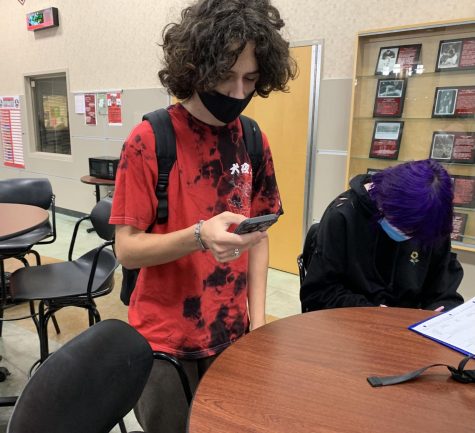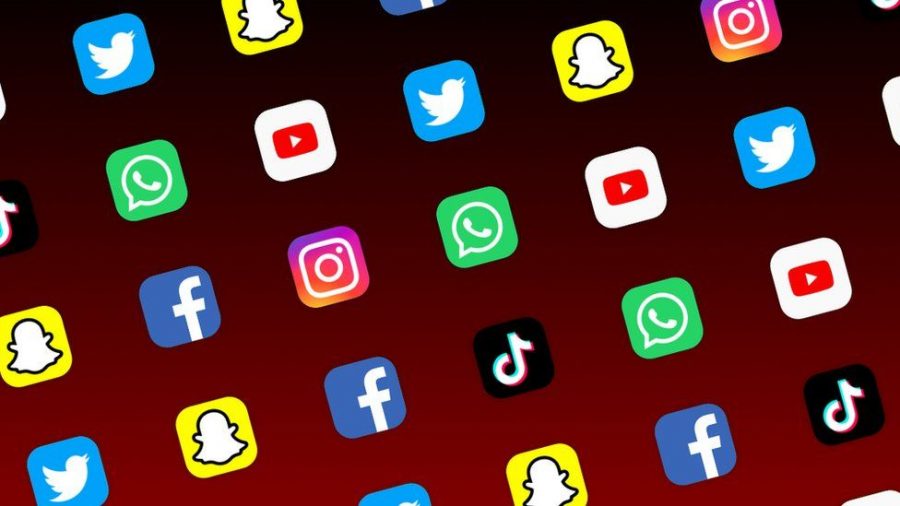Social Media Impact on Student Behavior
October 22, 2021
After spending the past year cooped up due to the unforeseen events that caused the world to come to a halt, teens have spent more and more time online using social media as a form of entertainment. However, this has resulted in a shift in the behavior that teenagers show in a post pandemic world.
“I just realize I wasted a lot of my time and am disappointed in myself,” says Ashlee Tupper, a junior at Camas High School who spends up to 20 hours a week on social media.
The truth behind social media is that it destroys the emotional wellbeing of many of its users, as apps like Instagram consist of an algorithm designed almost intentionally to rub likes in its’ users’ faces, which can create a sense of loneliness and in some cases, depression.
“I usually feel guilty after being on it for so long because I know I could’ve been using my time to do something else,” says another student who wishes to remain anonymous.

Social media is responsible for all this pain that students feel after being on social media. It provokes a feeling of loneliness and makes people feel as if they are missing out on the fun things taking place without them.
Using social media to judge each other causes a sense of powerlessness, but for others social media does the exact opposite. Those who run successful social media accounts that rake in likes tend to view themselves as superiors to others.
Social media has its ups and downs, and during the pandemic, social media’s plusses were brought to light, as millions of people stayed connected during the pandemic because of it, and many relied solely on social media to stay connected with friends and family.
The problem is that after these restrictions were lifted, the dependence on social media stayed.
Rachael Gentry is a first year psychologist at Camas High School and was able to shed light on the dependence that students now have on social media.
“Us as humans and human nature is to connect with people and when you don’t have that access, it can lead to things like depression and anxiety and social anxiety, especially if you are not practicing social skills everyday,” Gentry says.
During the Covid-19 pandemic social media was seen as a form of escape from the real world issues that occurred during the time period. “It’s opened a lot of doors for social interaction for students. Whether that’s good or bad I don’t know, we don’t really know for sure yet,” Gentry says.
One piece of advice Gentry gives to CHS students is to “be kind to yourself and others on social media and spend less time on it,” as the long term effects of social media on teenagers is still relatively unknown as social media has only been out for the last decade, too soon to highlight these effects in the long term.
Brayden Sterle, a sophomore at CHS, agrees with this advice. Sterle says “anyone can benefit from lower time,” an opinion that a portion of CHS students agree with in some aspects when it comes to social media usage in our current day.
Following the Covid-19 pandemic, many repercussions of the change in social standards still remain, especially among teenagers. After spending a year relying on mostly social media and other digital means of communication, many teens still are overly dependent on social media which is proving to be a problem as people move back into in-person school.


































